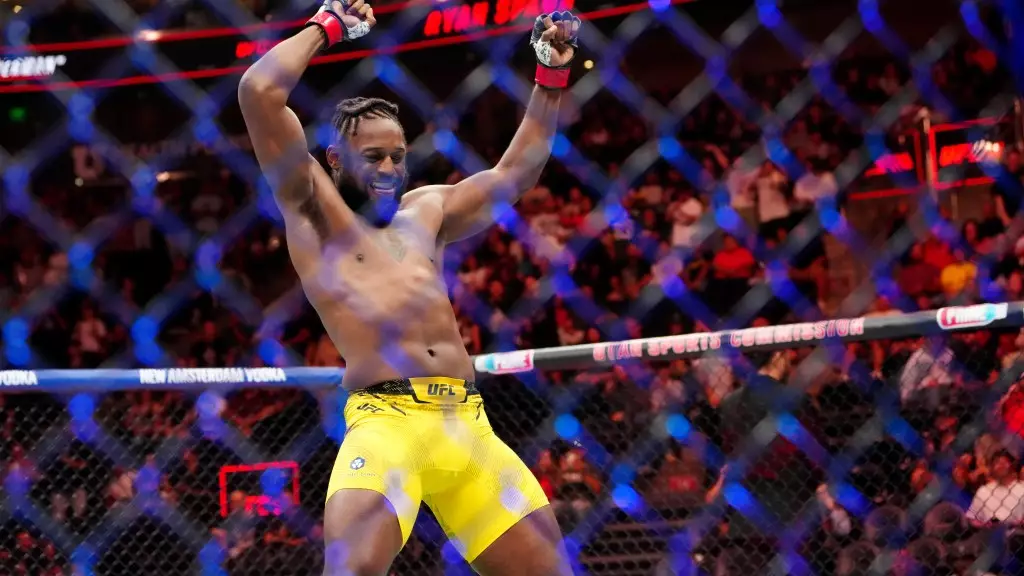In the high-octane world of UFC, victories can be fleeting, and for Ryan Spann, the recent bout at UFC 307 was a pivotal moment in his career. Facing veteran fighter Ovince Saint Preux, Spann, who now boasts a record of 22 wins and 10 losses, showcased remarkable skill by employing his renowned high-elbow guillotine choke to secure a first-round submission. What seemed like a straightforward execution of technique revealed layers of complexity about the fighter’s mindset and strategy leading up to this crucial encounter.
Prior to the fight, Spann expressed a strategic intent to avoid the guillotine choke, understanding that both he and Saint Preux possessed effective counter-moves. This admission gives insight into the psychological aspect of fighting, where anticipation and preparation are as crucial as brute strength and skill. Spann’s willingness to engage in a technique he was eager to bypass signifies a moment of instinctive decision-making that often defines elite fighters. The essence of competition is not just about executing one’s game plan but also about adapting when circumstances dictate otherwise.
Despite emerging victorious, Spann displayed humility by acknowledging his performance flaws during the fight. Reflecting back, he recognized that his movement was “a little sloppy,” a critique that transcends beyond a mere admission of error. It displays a deep understanding of the importance of continuous growth and self-improvement in martial arts. Spann’s commitment to refining his techniques, despite a swift win, showcases his dedication to elevating his performance level and avoiding complacency. This attitude towards critical self-reflection is what separates champions from those who merely compete.
With the dust settled and a three-fight losing streak behind him, Spann now aims to solidify his position in the UFC while also cherishing time with his family. The intersection of career and personal life is often challenging for athletes, particularly those like Spann who have dedicated a significant portion of their lives to the sport. He readily admitted to the sacrifices required, stating, “I’ve had to miss out on some things” regarding his son’s football activities. This acknowledgment speaks volumes about the struggle many athletes face—balancing the demands of a rigorous training schedule while being present for their loved ones.
Spann’s triumph is not only a victory in the octagon but also a stepping stone towards future opportunities. His proactive approach to training and determination to address the imperfections he perceives in his fighting technique suggests a fighter in pursuit of excellence. As he waits for new challenges to come from matchmaker Mick Maynard, it’s clear that Ryan Spann is not merely focused on winning but on evolving as an athlete and a role model for his family. His narrative is an inspiring testament to perseverance, and it serves as a reminder that success in combat sports encompasses much more than a single victory.

